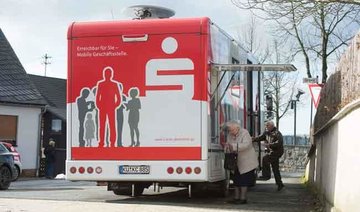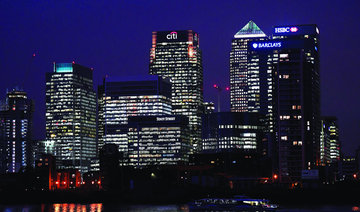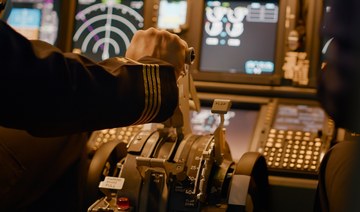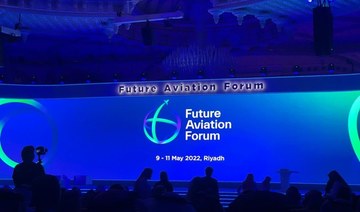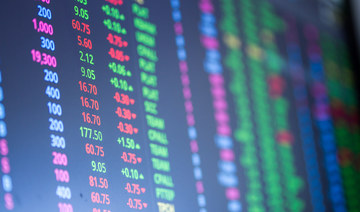FRANKFURT: Euro zone banks may get a reprieve until 2021 to fully implement European Central Bank guidelines on treating new soured loans, an ECB document showed on Thursday, a retreat from an earlier proposal for a more aggressive treatment of bad debt.
The ECB’s long-delayed guidelines of new non-performing loans will go into effect on April 1, but the supervisor may hold off for several years before forcing lenders to build provisions for loans going bad after its cut-off date, the ECB said in a statement.
Weighed down by some €750 billion ($927.08 billion)worth of existing bad loans, euro zone banks are struggling to overcome the legacy of the region’s debt crisis, a drag on new lending that undercuts the stimulus the ECB is trying to provide through rock-bottom borrowing costs.
Hoping to ease concerns about its original proposal, the ECB said the guidelines were non-binding expectations and would merely serve as the basis for case-by-case dialogue with banks on how they provision against bad debt.
“The result of this dialogue will be incorporated, for the first time, in the 2021 Supervisory Review and Evaluation Process,” the ECB said in a statement.
“Banks should use the time to prepare themselves and also to review their credit underwriting policies and criteria to reduce the production of new non-performing loans (NPLs), in particular during the current benign economic conditions.”
According to the guidelines, banks will have two years to fully provision for bad non-secured debt. For secured loans the deadline will be seven years.
But in another change from its original proposal, the ECB will ask for provisions on secured debt only from the third year, instead of a linear build up.
“The ECB is still shying away from moving quickly on addressing NPLs,” said Guntram Wolff of Brussels-based think tank Bruegel. “It is important to give time, but another two-and-half-year delay is bad news for returning Europe to full health.”
The ECB’s guidelines come just a day after the European Commission announced its own measures on bad debt.
Under its proposal, which needs the approval of EU states and lawmakers, banks will have two years to fully cover unsecured loans and eight years to cover secured debt.
That proposal involves only newly granted loans. The ECB’s guidelines involve any loan already on the books and classified as non-performing after April 1.
“The addendum is less severe than expected,” Credit Suisse said in a note to clients. “The good news for secured loans is that it is mandatory as of year three.”
“(It is) a better-than-expected outcome that is positive for Italian banks, in our view,” it added. “Small Italian banks in particular should benefit from the news.”
The new guidelines were intended to take effect on Jan. 1, but the bank extended the deadline to revise the proposal after fierce criticism, particularly from Italy, whose banks have accumulated more bad debt that most in Europe.
Bankers and European parliamentarians, particularly from Italy, fear that forcing banks to set aside more money against bad loans will strangle lending in economies that are already missing out on the economic expansion taking hold elsewhere in the euro zone.
They argued that the ECB’s original proposal was contrary to EU legislation because it set blanket rules for an entire sector, a move outside a supervisor’s prerogative.
“The addendum is non-binding and will serve as the basis for the supervisory dialogue between the significant banks and ECB Banking Supervision,” the ECB said.
Euro zone banks may get reprieve until 2021 from ECB bad-debt rules
Euro zone banks may get reprieve until 2021 from ECB bad-debt rules
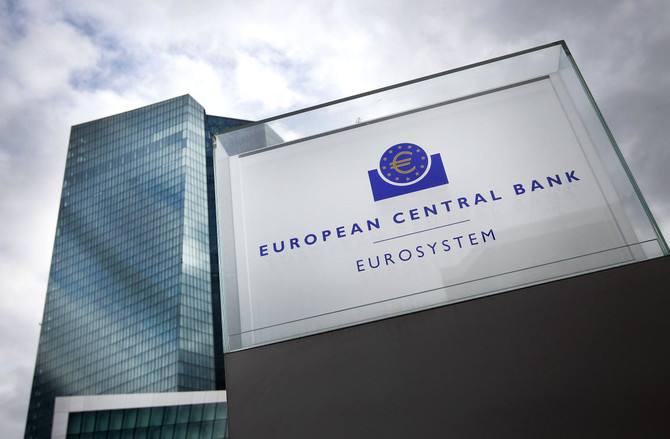
Saudi Arabia to reveal $100bn in investment opportunities at aviation forum

- Minister for Transport and Logistics Services Saleh-Al-Jasser: Saudi Arabia is presenting aviation investment opportunities that are unmatched globally
- Minister for Investment Khalid Al-Falih: Aviation is a key investment sector and enabler of the Kingdom’s broader economic transformation
RIYADH: The world’s largest aviation investors will descend on Riyadh later this month for the Future Aviation Forum, where Saudi Arabia will unveil more than $100 billion in investment opportunities to enable its ambitious Saudi Aviation Strategy.
The forum’s investment showcase will highlight projects and incentives to attract investment into the Kingdom’s booming aviation sector, including airports, airlines, ground services, cargo and logistics.
In the $100 billion in investment opportunities, airports account for more than $50 billion, new aircraft orders about $40 billion, while the remaining $10 billion is earmarked for other projects, including $5 billion in special logistics areas around the main airports in Riyadh, Jeddah, and Dammam.
Minister for Transport and Logistics Services Saleh-Al-Jasser, who will open FAF24, said: “Saudi Arabia is presenting aviation investment opportunities that are unmatched globally, as the Saudi Aviation Strategy triples passenger numbers, connects to more than 250 destinations and handles 330 million passengers and 4.5 million tonnes of cargo by 2030.”
Minister for Investment Khalid Al-Falih, who will open the investment showcase, added: “Saudi Arabia is the world’s new investment hub, targeting $3.3 trillion in investment by 2030. Aviation is a key investment sector and enabler of the Kingdom’s broader economic transformation. The aviation investment showcase will provide investors with unparalleled access to participate in the Kingdom’s transformation.”
The showcase will include investor briefings, meetings and panels on major projects including the six-runway King Salman International Airport in Riyadh and public private partnerships for Abha, Taif, Hail and Qassim international airports. The showcase will also feature opportunities in cargo and logistics, advanced air mobility and business aviation. Aviation suppliers will be briefed on expansion plans for new airline Riyadh Air, as well as leading regional airlines including Saudia, Flynas and Flyadeal.
Global executives from Boeing, Airbus, Commercial Aircraft Corporation of China, and Embraer will attend the event, alongside investors and representatives from airlines, airports, cargo, logistics and aviation services companies. Speakers include Saudi ministers as well as Saudi and global aviation and investment CEOs.
The Future Aviation Forum runs from May 20-22 in Riyadh. For more information, visit www.futureaviationforum.com
NEOM to build Jaumur marina on the Gulf of Aqaba
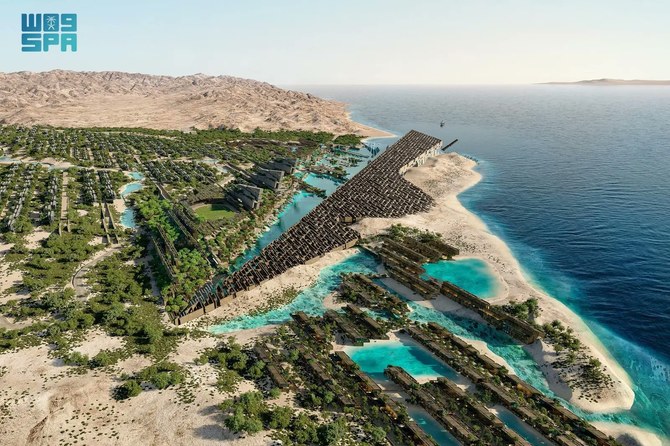
- Jaumur will be an exclusive residential community planned around an inspiring marina for more than 6,000 residents
- The marina promenade will be a place alive with entertainment, leisure and cultural experiences, hosting year-round arts events and performance programs
RIYADH: NEOM has announced that it will build a new marina and community on the Gulf of Aqaba called Jaumur.
The board of directors of NEOM said that Jaumur will be designed to serve the highest standards of future livability and active lifestyle. The new addition promises a unique blend of experiences on land and sea, complementing NEOM’s evolving regional development in northwest Saudi Arabia.
Jaumur will be an exclusive residential community planned around an inspiring marina for more than 6,000 residents. Embedded into the varied topography of the Gulf of Aqaba coast, it will feature 500 marina apartments and nearly 700 luxury villas, offering waterfront access and private mooring. Two distinctive destination hotels in Jaumur will offer 350 luxurious rooms and suites, inviting guests to enjoy the breathtaking views and embrace all aspects of modern coastal hospitality and sporting activities.
The marina will be the focal point of the development, the beating heart around which the community of Jaumur will thrive. A 1.5 km aerofoil rises above the largest of the yacht berths, providing year-round protection for yacht owners and a haven for the marina’s residents and guests. The aerofoil incorporates a gravity-defying cantilever to form a stunning entrance to the marina, welcoming the world’s largest superyachts.
The marina promenade will be a place alive with entertainment, leisure and cultural experiences, hosting year-round arts events and performance programs, complemented by signature retail outlets and world-class dining options.
Jaumur’s commitment to innovation and learning is embodied in the development’s state-of-the-art deep-sea research center and top-tier international boarding school. The research institute is dedicated to deep-sea exploration, welcoming established experts and ambitious pioneers to champion marine discovery, knowledge and conservation and establish NEOM as a world-leading center for oceanographic research.
The international boarding school will prepare students for global achievement through an exclusive and progressive education delivered by a diverse international faculty of experts and innovators.
Jaumur’s unique architectural design integrates water where golden sands meet the deep blue of the Gulf of Aqaba. It is a luxury destination to visit, explore, live and prosper: an opportunity to become part of a dynamic community.
Jaumur follows the recent announcements of Leyja, Epicon, Siranna, Utamo, Norlana, Aquellum, Zardun, Xaynor, Elanan, Gidori and Treyam as sustainable tourism destinations on the Gulf of Aqaba, all woven together by NEOM’s commitment to sustainable progress.
Closing Bell: TASI edges up to close at 12,460 points

RIYADH: Saudi Arabia’s Tadawul All Share Index climbed on Wednesday, gaining 102.12 points, or 0.83 percent, to close at 12,460.11.
The total trading turnover of the benchmark index was SR8.189 billion ($2.18 billion), as 138 of the listed stocks advanced while 81 retreated.
Similarly, the MSCI Tadawul Index increased by 9.75 points, or 0.63 percent, to close at 1,557.46.
The Kingdom’s parallel market Nomu also climbed by 144.95 points, or 0.54 percent, to close at 26,886.59. This comes as 32 of the listed stocks advanced while as many as 35 retreated.
The best-performing stock of the day was Acwa Power Co., whose share price surged by 9.7 percent to SR438.80.
Other top performers include Alkhaleej Training and Education Co. and the Mediterranean and Gulf Insurance and Reinsurance Co., whose share prices soared 8.92 percent and 8.09 percent to SR37.25 and SR34.75, respectively.
Additional top performers include Al-Baha Investment and Development Co. and Malath Cooperative Insurance Co.
The worst performer was Nahdi Medical Co., whose share price dropped by 2.48 percent to SR133.60.
Other poor performers were the Co. for Cooperative Insurance as well as Jabal Omar Development Co., whose share prices dropped by 2.42 percent and 2.32 percent to stand at SR161 and SR27.40, respectively.
Additional poor performers include United Cooperative Assurance Co. and AlSaif Stores for Development and Investment Co.
On the announcements front, Al Rajhi Bank announced its intention to issue US-denominated additional tier-1 capital sukuk under its international additional tier-1 capital sukuk program established on April 18 following the board of directors’ decision on March 25.
The bank informed Tadawul that the value and terms of the sukuk offering would be decided based on current market conditions.
The sukuk will be issued through a special-purpose vehicle and will be accessible to qualified investors, both domestically and internationally.
The bank appointed Al Rajhi Capital, Citigroup Global Markets Ltd, Dubai Islamic Bank, and Emirates NBD, as well as Goldman Sachs International, HSBC, and Standard Chartered Bank, as joint lead managers and bookrunners for the potential offering.
Nahdi Medical Co. announced its results for interim financial results for the period ending on March 31, with revenues surging by 7.24 percent to reach SR2.257 billion, compared to SR2.105 billion in 2023.
The increase was primarily driven by a strong performance in the core pharma segment and a solid recovery in front shop segment led by the beauty categories.
However, the company’s net profits decreased in the first quarter of this year to SR232.9 million, marking a 4.67 percent decline compared to the same quarter in 2023.
Saudi Telecom Co. also announced its financial results for the same period with earnings increasing 5.07 percent compared to the same quarter last year, reaching SR19.1 billion.
Saudi Real Estate Co. also announced its financial results for the same period, with revenues surging by 8.8 percent to reach SR427.6 million, compared to SR393 million in 2023.
The revenue growth was mainly attributed to the increase in stc Saudi Arabia earnings by 1.2 percent, driven by the rise in commercial unit revenues by 6.7 percent and carriers and wholesale unit incomes by 5.7 percent, which offset the decline in business unit revenues.
Furthermore, stc’s subsidiaries’ gains also increased by 13 percent.
Halwani Bros. Co.’s earnings increased by 5.93 percent to SR270.36 billion compared to SR255.22 billion in its interim financial results, which ended March 31.
The reason for the increase in sales during the current quarter compared to the same period of the previous year is due to a rise in the company’s transactions in the Kingdom and its subsidiary in Egypt.
Saudi Arabia achieves highest evaluation level in UN’s Competition Law Systems Report

RIYADH: Saudi Arabia has received global recognition from a UN commission for its robust legal framework and “very strong” competition law.
The Kingdom attained the highest evaluation level in the Competition Law Systems Report for 2023, issued by the UN Economic and Social Commission for Western Asia, surpassing the “developed” level achieved in 2020, according to the Saudi Press Agency.
The Competition Law Index measures the strictness of regulations and is categorized according to the maturity of eight key criteria.
The Kingdom achieved a perfect score of seven in the index concerning regulatory frameworks for economic concentration operations.
Saad Al-Masoud, the spokesperson for the General Authority for Competition, affirmed that this advancement reflects the support GAC receives from the wise leadership to achieve the goals of Vision 2030 programs.
He added that these objectives aim to improve a sustainable business atmosphere, foster economic growth, and advance consumer welfare.
Al-Masoud further noted that this achievement is the result of significant developments in several areas, including laws combating monopolistic practices and anti-competitive agreements, as well as his authority’s efforts to review economic concentrations.
He also said that several additional factors have contributed to upholding the competitive landscape of the business sector, ensuring fairness, transparency, and adherence to reasonable competition regulations.
An initial competition system was established in Saudi Arabia in 2004, and in October 2017 the Kingdom’s Council of Ministers endorsed the change of the name to the GAC and a new organizational structure.
The authority was also made a financially and administratively independent entity, and in March 2019, another royal decree was issued approving the updated competition system.
Since its inception 20 years ago, GAC has imposed fines totaling nearly SR1 billion ($270 million) on around 252 companies found to be violating its regulations, according to a recent interview Al-Masoud conducted with Arab News.
As a prominent regulatory body, it aims to safeguard the integrity of market mechanisms while fostering innovation and diversity in products and services.
stc Bank set to launch later this year, says group CEO
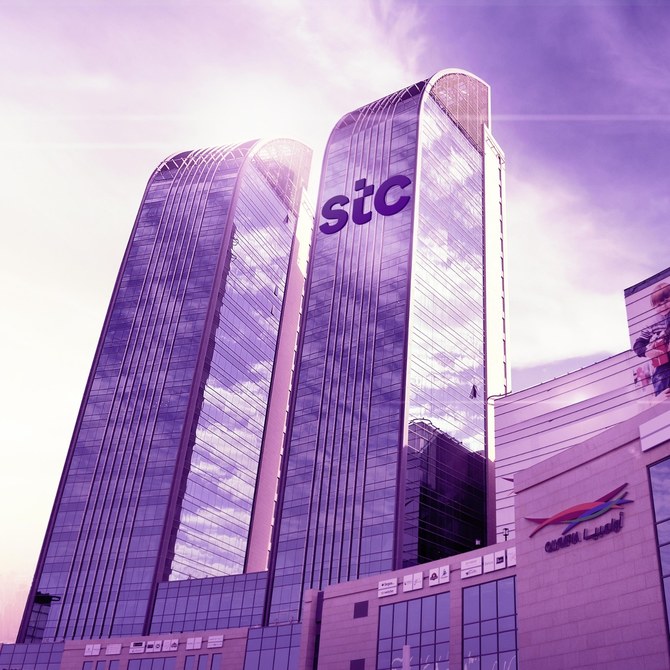
RIYADH: Saudi telecom giant stc Group has obtained official approval for the soft launch of its new banking sector subsidiary, aiming to provide Shariah-compliant fintech solutions.
The Saudi Central Bank has given the green light for the beta launch of stc Bank, with a full rollout to all customers anticipated later this year, revealed the company's CEO, Olayan Al-Wetaid, while announcing the financial results of the first quarter.
The new entity will offer banking services and financial solutions compliant with Islamic Shariah, prioritizing high security and customer protection through advanced fintech. This aligns with the ambitious goals of the Kingdom’s Vision 2030 for a prosperous diversified economy.
In its financial results announcement for the period ending March 31, the CEO explained that stc Group has strengthened its position in the telecommunications sector through a strategic partnership with the Public Investment Fund.
Earlier in April, the two entities finalized agreements for PIF to acquire a 51 percent stake in the Telecommunications Towers Co., also known as Tawal, valuing the company at SR21.94 billion ($5.8 billion).
This transaction is part of a broader merger with Golden Lattice Investment Co. to form a new entity that aims to lead the national telecommunications infrastructure, with stc Group retaining a 43.06 percent stake.
These developments are part of stc’s DARE 2.0 strategy, which focuses on unconventional growth paths and leading digital transformation in the region, Al-Wetaid stated.
The strategy has already yielded significant results, with stc’s network experiencing its highest volume of voice calls during the recent Ramadan, a 35 percent increase compared to the previous year, supported by modern digital voice technologies.
Further embodying its growth strategy, stc Group has engaged in numerous strategic partnerships and agreements, notably at the LEAP 2024 conference with global tech giants such as Huawei, Ericsson, and Samsung.
These collaborations are designed to enhance innovation and speed up digital transformation across the region.
Additionally, the group’s subsidiary, Solutions, signed a memorandum of understanding with the French Devoteam Group in February to explore IT investment opportunities globally, following Solutions’ acquisition of a 40 percent stake in Devoteam Middle East.
In its financial report, stc Group highlighted a notable growth in revenues for the first quarter of 2024, which increased by 7.76 percent compared to the previous quarter and by 5.07 percent compared to the same quarter last year, totaling SR19.1 billion.
This revenue growth was primarily driven by a 1.2 percent increase in stc Saudi Arabia’s revenues, supported by a 6.7 percent rise in commercial unit revenues and a 5.7 percent increase in carriers and wholesale unit revenues, despite a decline in business unit revenues.
Additionally, revenues from stc’s subsidiaries saw a significant rise of 13 percent.
The company also reported growth in gross profit, which rose by 5.13 percent compared to the previous quarter and by 1.65 percent compared to the same quarter last year, reaching SR9.3 billion.
Earnings before interest, taxes, zakat, depreciation, and amortization similarly showed a robust increase, rising by 16.3 percent compared to the previous quarter and by 2.07 percent compared to the same period last year, reaching SR6.4 billion.
Notably, net profit for the quarter surged by 44.50 percent compared to the previous quarter and increased by 5.69 percent compared to the same quarter last year, totaling SR3.2 billion.


